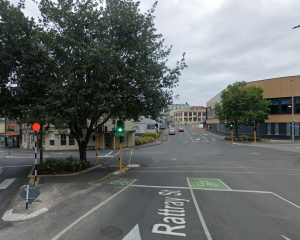Prof Julian Savulescu delivered a public lecture at Dunedin Hospital last night, offering an alternative to the World Anti-Doping Agency's zero-tolerance policy on the use of performance-enhancing substances.
He said the agency's guidelines were vague and contradictory, and history had shown they were failing to expose cheats or provide a level playing field.
''There's nothing wrong with adopting a zero-tolerance approach except that it's going to continue to fail, as it has failed, and there's no particularly good reason ethically to have that ban. Maybe another approach is better on a number of considerations.''
Prof Savulescu said most high-level doping involved athletes altering their levels of red blood cells and other naturally-occurring compounds within the range of normal, healthy human variation.
He termed it physiological doping and said because people's naturally occurring levels were different, and their receptors to enhancing practices were different, it was ''virtually impossible'' to detect whether they had doped.
''They're not taking alien substances like cocaine. They're taking things which are naturally in the body.''
Caffeine, painkillers, glucose and other things enhanced performance but were not banned, which was nonsensical, he said.
Allowing physiological doping within levels defined as normal and healthy, for example a red blood cell count of up to 50%, would actually create a more fair competitive environment and see testing become 90% effective.
Cyclist Lance Armstrong was one of many athletes guilty of physiological doping which could not be proven, despite 200 tests,'' he pointed out.
''The current policy is failing and it's destroying the spectacle of sport because you don't know whether people are clean or doping. Paradoxically, it's actually worse for athletes. It creates unfairness and it's against the spirit of sport,'' he said.
''They tried to reallocate his [Armstrong's] medals, as there were 21 podium finishes, and 20 out of 21 can't be reallocated because so many [cyclists] have been implicated that there's no-one [clean] to give them to.''
Prof Savulescu said it was important rules were set and athletes medically supervised, but suggested the landscape of sport was evolving and perhaps the approach to doping should evolve with it.
Dave Gerrard, an associate professor of medicine at Otago and former Olympian, was at the lecture and opposed many of Prof Savulescu's points. He said doping tests had advanced and Australasian athletes had, in the past two decades, maintained a ''very clean slate''.












